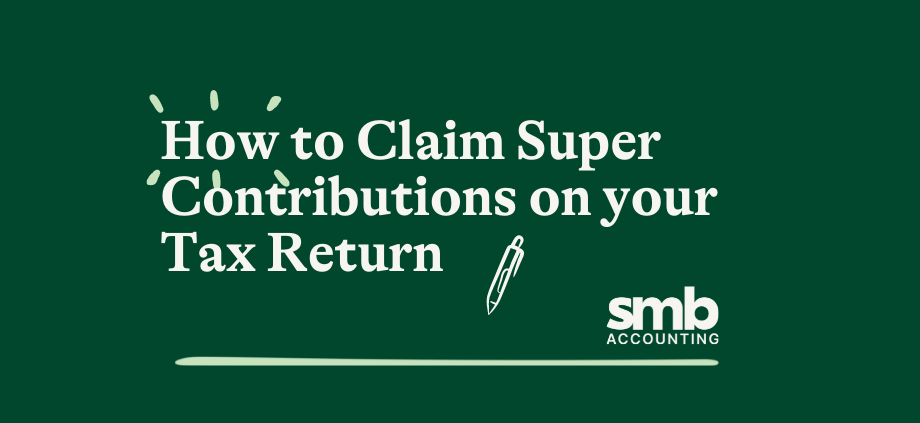How to Claim Super Contributions on Tax Returns
Most Australians know that superannuation is money you save for retirement. But not everyone knows that you can also contribute your savings to super. Not only that, but the money you contribute (after taxes) can be tax-deductible.
If you did not know you can claim personal super contributions back on your tax return, we’ve got you. Here’s how exactly you can do that:
What Is a Personal Super Contribution?
A personal super contribution is money you contribute to your super fund outside of your super fund’s compulsory payments. And if you make personal super contributions, you can claim them back on your tax return.
Once you reach the age of 18, you can make personal super contributions. You’re eligible to claim a tax deduction for these contributions if your income is under €180,000.
How to Claim Personal Super Contributions on Your Tax Return
If you make personal super contributions to your superannuation fund, you can claim a tax deduction for these contributions.
The deductions for personal super contributions are listed in the tax deduction tables. When you add up all the tax deductions, it is up to you if you want to carry it forward to your next year’s tax return or claim it in any one year.
You should also note that you can only claim deductions for your personal contributions if your total income is less than €180,000.
How to Claim Tax Deductions for Personal Super Contributions
The first thing you will need to do to claim your personal super contributions is to add up all the deductions. In your tax deduction tables, the allowable tax deductions for personal super contributions are listed in section 3.
To work out your deduction, you need to work out the total income you earned during the year and then subtract any other allowable deductions you might have, such as medical expenses or rental property deductions.
Then you can use the total amount as the amount you can claim on your tax return. It’s that simple. Make sure you keep your tax return document as evidence for your claim.
What if You Make Super Contributions for Someone Else?
Making super contributions for someone else can also be tax-deductible.
The employer superannuation guarantee makes it compulsory for your employer to pay 9.5 percent of your salary to your super fund. But if your employer does not pay this money and you make personal super contributions instead, you can claim a tax deduction for these contributions. Your tax deduction tables list personal super contributions for other people in section 1b.
What Else Should You Know about Personal Super Contributions?
There are some other things to note about personal super contributions.
Your personal super contributions can be made through salary sacrifice. This means that you can choose to have part of your salary paid to your super fund instead of receiving it and receive a tax deduction for that.
Your personal super contributions can also be made before tax has been deducted. This is in the form of a before-tax declaration form.
Conclusion
As you can see, claiming personal super contributions on your tax return is simple. It’s just a matter of working out the total amount of deductions you have and deducting them from your total income.
And suppose you find that your combined personal and super contributions exceed the concessional contributions cap. In that case, it is still a good idea to claim the total amount, as you can carry forward unused contributions to your next year or carry forward unused deductions to your next year.
SMB Accounting does Individual tax returns, small business accounting with various small business accounting packages available, SMSF audits (self-managed super funds) as well as a Xero accounting software-based accounting business. We are your trusted partner when it comes to tax returns and superannuation. If you want to know more about the advantages of self-managed super funds, get in touch with us today! Let us know how we can help.

